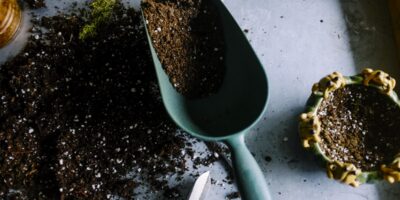Homemade Spray for Roses
Making homemade sprays for roses has gotten complicated with all the recipes and miracle cures flying around Pinterest and gardening blogs. As someone who has maintained a rose garden for over fifteen years — through aphid invasions, black spot outbreaks, and everything in between — I learned everything there is to know about what actually works. Today, I will share it all with you.

Why Bother Making Your Own?
Commercial pesticides do the job, sure. But they often contain chemicals that kill beneficial insects along with the pests. I’m apparently one of those people who wants bees in my garden, so nuking everything with store-bought sprays never sat right with me.
Homemade alternatives let you control exactly what goes on your plants. Plus, you probably already have most ingredients in your kitchen. Cost-effective and customizable — that’s the appeal.
What You’ll Need
- Water
- Baking soda
- Dish soap (plain, not the antibacterial kind)
- Neem oil
- Garlic
- Vinegar
Recipes That Actually Work
The Baking Soda Solution
This one tackles fungal problems effectively. Mix 1 tablespoon baking soda, 1 teaspoon dish soap, and 1 gallon of water. Pour it into a spray bottle and apply early morning — afternoon sun can burn wet leaves.
Cover both top and bottom of leaves. Fungi hide underneath where you don’t always look. Probably should have led with that tip, honestly.
Neem Oil Mix
Neem comes from the neem tree and handles a variety of pests. Combine 2 teaspoons neem oil with 1 gallon water and 1 teaspoon dish soap. Shake well before each use — the oil separates.
Apply in evening to avoid leaf burn. Target both leaf surfaces. Repeat every 7 to 14 days, or after it rains.
Garlic Spray
Garlic has natural antifungal and antibacterial properties. It also smells terrible to most insects, which is exactly the point.
Crush 2 bulbs and soak overnight in 4 cups of water. Strain out the chunks, add 1 teaspoon dish soap, and spray away. Focus on areas where you’ve spotted pests. The smell fades after a day or so.
Vinegar Treatment
One cup vinegar to one gallon water, plus a teaspoon of dish soap. Spray in the morning. Be careful here — too much vinegar damages plants. This isn’t one where more is better.
How to Apply Without Killing Your Roses
That’s what makes rose care endearing to us gardeners — it requires attention and adjustment.
Consistency beats intensity. Apply regularly rather than soaking your plants once and hoping for the best. Monitor your roses for any adverse reactions. Leaf burn or wilting means back off and try a different recipe.
Storage Tips
Keep homemade sprays in a cool, dark place. Most last a few weeks if stored properly. Label your bottles — especially if you have curious kids or pets around. These aren’t dangerous, but they’re not beverages either.
Why Natural Ingredients Make Sense
Natural sprays work with your garden’s ecosystem instead of against it. You’re not wiping out every insect, just discouraging the problematic ones. Ladybugs, bees, and other beneficial creatures stick around.
Plus, you know exactly what’s going on your plants. No mystery chemicals, no unpronounceable ingredients. Just simple stuff doing simple work.
What These Sprays Actually Combat
Aphids
Those tiny sap-suckers that curl and yellow your leaves. Garlic and neem oil sprays work best against them.
Black Spot
The fungal disease that leaves — well, black spots — on foliage before leaves drop entirely. Baking soda spray helps prevent and treat it.
Powdery Mildew
That white, powdery coating on leaves and stems. Both baking soda and vinegar solutions can control it when applied consistently.
Mistakes to Avoid
Always test any spray on a small section first. Wait 24 hours. If nothing bad happens, proceed with the whole plant. I’ve learned this lesson the hard way more than once.
Never spray during the heat of the day. Morning or evening only. Midday sun plus wet leaves equals burned foliage.
What Commercial Products Have Going for Them
Homemade sprays are cheaper and more natural. But if a serious infestation or disease hits, sometimes you need the stronger stuff. No shame in escalating when your plants are suffering.
If nothing’s working after a few weeks of consistent treatment, consult someone who knows roses. Local garden centers usually have staff who’ve seen everything.
The Bottom Line
Creating your own rose sprays puts you in control. With the right ingredients and regular application, you can keep your bushes healthy and blooming. Experiment with different recipes until you find what works for your specific situation. Every garden is different, and what saves one person’s roses might not be your answer — but these basics give you a solid starting point.


